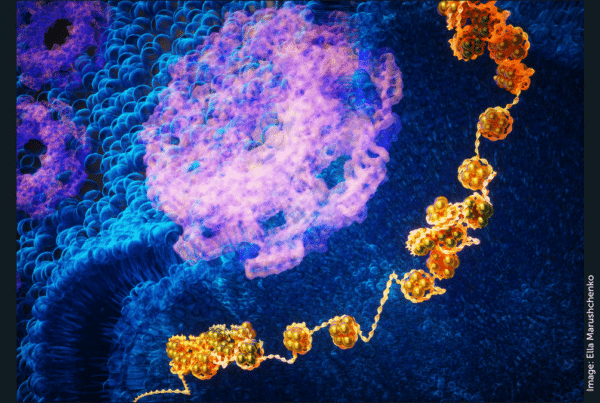Scientists find way to wipe a cell’s memory to better reprogram it as a stem cell
Read More
Almost every cell in the body contains essentially the same genome sequence, however differential usage of the genetic information enables cells with vastly different features and functions to be formed. The epigenome is a molecular code superimposed upon the genome that can control how genes are turned on and off, without altering the underlying DNA sequence. By modulating accessibility and usage of the information encoded in the genome, epigenetic modifications can affect gene activation and repression to execute distinct transcriptional programs and impart a stable state of transcriptional activity. Developing a comprehensive understanding of how the cell utilises the epigenome is essential in order to both understand the critical roles it plays in cell differentiation and development, and to develop effective strategies to remedy its disruption in disease states.
DNA methylation is a central epigenetic modification that imparts an additional layer of information upon the DNA code, playing critical roles in processes including genome defence, gene regulation, development, and disease. However, fundamental questions remain regarding the processes that govern the establishment of epigenome patterns and how the cell interprets them to affect changes in chromatin structure and gene expression. Revolutionary advances in DNA sequencing technology in the past few years now allow identification of the sites of DNA methylation at single base resolution throughout entire genomes. Integration of these maps with deep molecular profiling of genome accessibility, histone modifications, and transcriptional activity are revealing unanticipated composition and dynamics in the epigenomes of complex multicellular organisms.
Ryan’s research uses advanced genomic, molecular, genetic and computational techniques to study the epigenome, including using next-generation sequencing technologies to generate whole-genome high-resolution maps of the epigenome and associated molecular processes (e.g. whole genome bisulfite sequencing, RNA-seq, ChIP-seq, ATAC-seq). His research aims to elucidate the mechanistic underpinnings of how the epigenome is established and dynamically modified, how it affects the cellular readout of the underlying genetic information, and to develop molecular tools for editing the epigenome.



